I’ve been knocked unconscious, had my eye gouged and shattered my arm – but I’d never stop my kids playing rugby
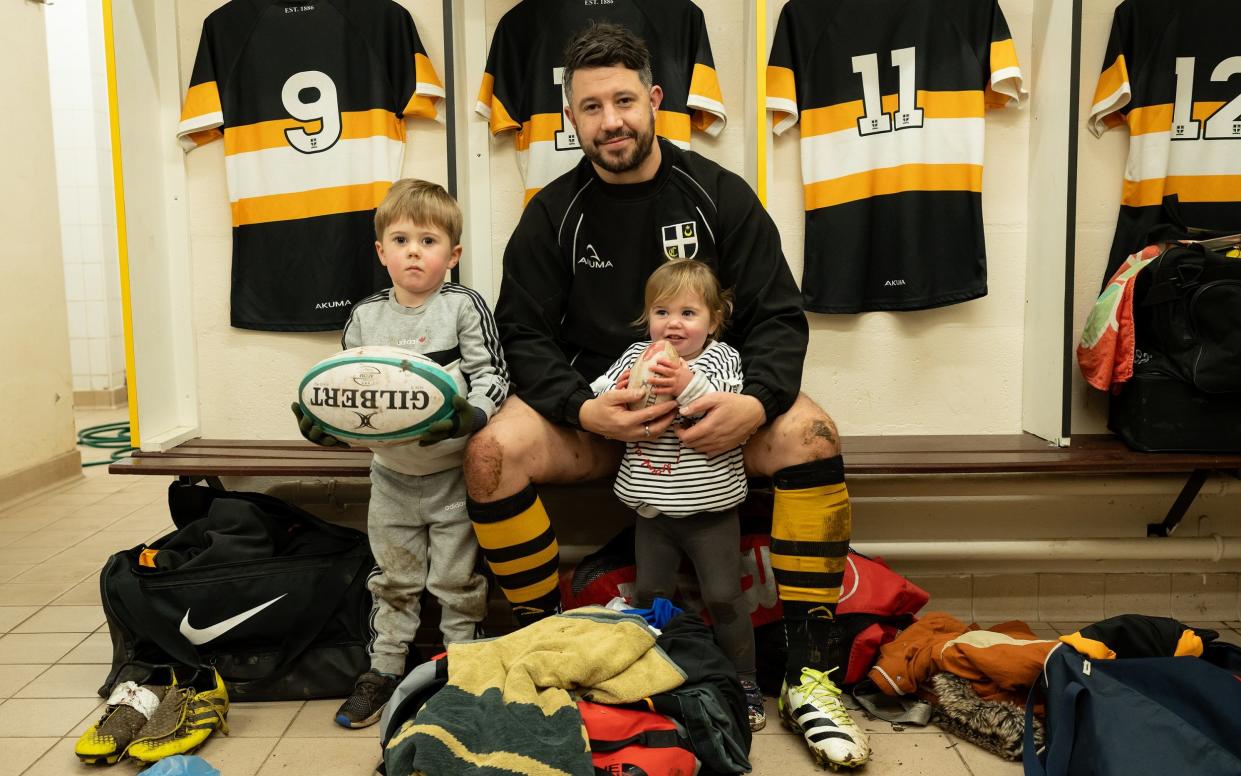
- Oops!Something went wrong.Please try again later.
It’s hard to put into words what rugby means to me. And it keeps evolving.
Having my children on the sideline watching me play is the purest pleasure I have in life. Elliott, my eldest at three, copying what he’s seen his dad do and wanting to kick the ball over the posts. My 18-month-old Isobel, spotting me amongst the melee and shrieking “Daddy” with her trademark grin.
That’s the issue with the negativity around the game – the risk is quantifiable, but the benefits aren’t.
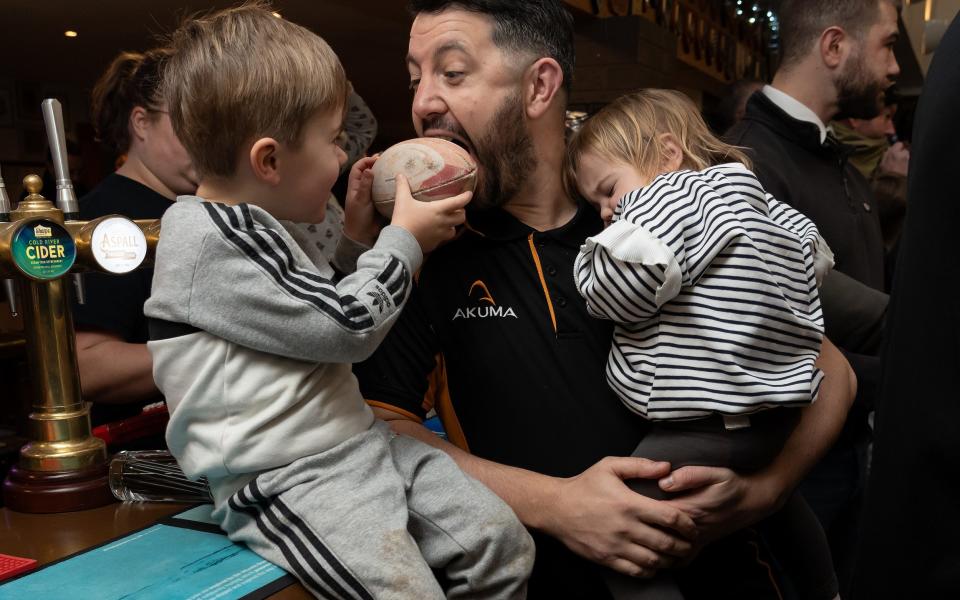
If you play rugby, you will get hurt. Often badly. Sometimes terribly.
It’ll also hand you best pals on a plate. Having moved around a fair bit, it’s tough for any adult to make new friends. There’s nowhere like a rugby club. Somewhere that a complete stranger becomes part of the furniture in the blink of an eye.
Anyone who turns their hand to rugby will be healthier physically and mentally, too. It instils discipline and builds unbreakable bonds. My WhatsApp groups – the marker of friendships these days – are relentlessly flooded with banter daily. All rugby boys.
But it’s more than just reminiscing about the good times at the University of Worcester or one of my (many) former clubs. We’re bands of brothers created by putting our bodies on the line for each other. And we’re all proper mates for life, too.
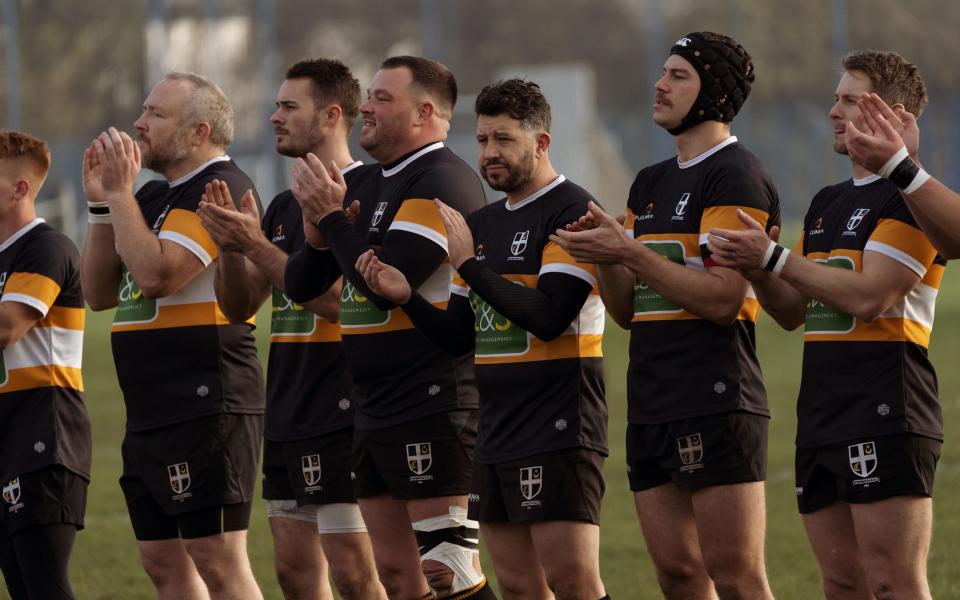
I’ve played one of them down the aisle, given a best man’s speech at another’s wedding, been master of ceremonies for two different rugby boys on their big day and the list goes on.
I’m 35 now, playing for Portsmouth, and still loving it. To the point that I’m petrified of the thought of life without rugby, so am clinging on for all my worth.
My parents took me to my first game aged five for Penarth under-6s in South Wales. My childhood memories – pretty much all of them – were made at a rugby club.
Mum and Dad and their friends would watch the rugby then pile into the bar. Us kids would find any patch of mud and run at each other until it got dark, then it would be touch rugby on the quiet streets. The streetlights as our floodlights. Halcyon days.
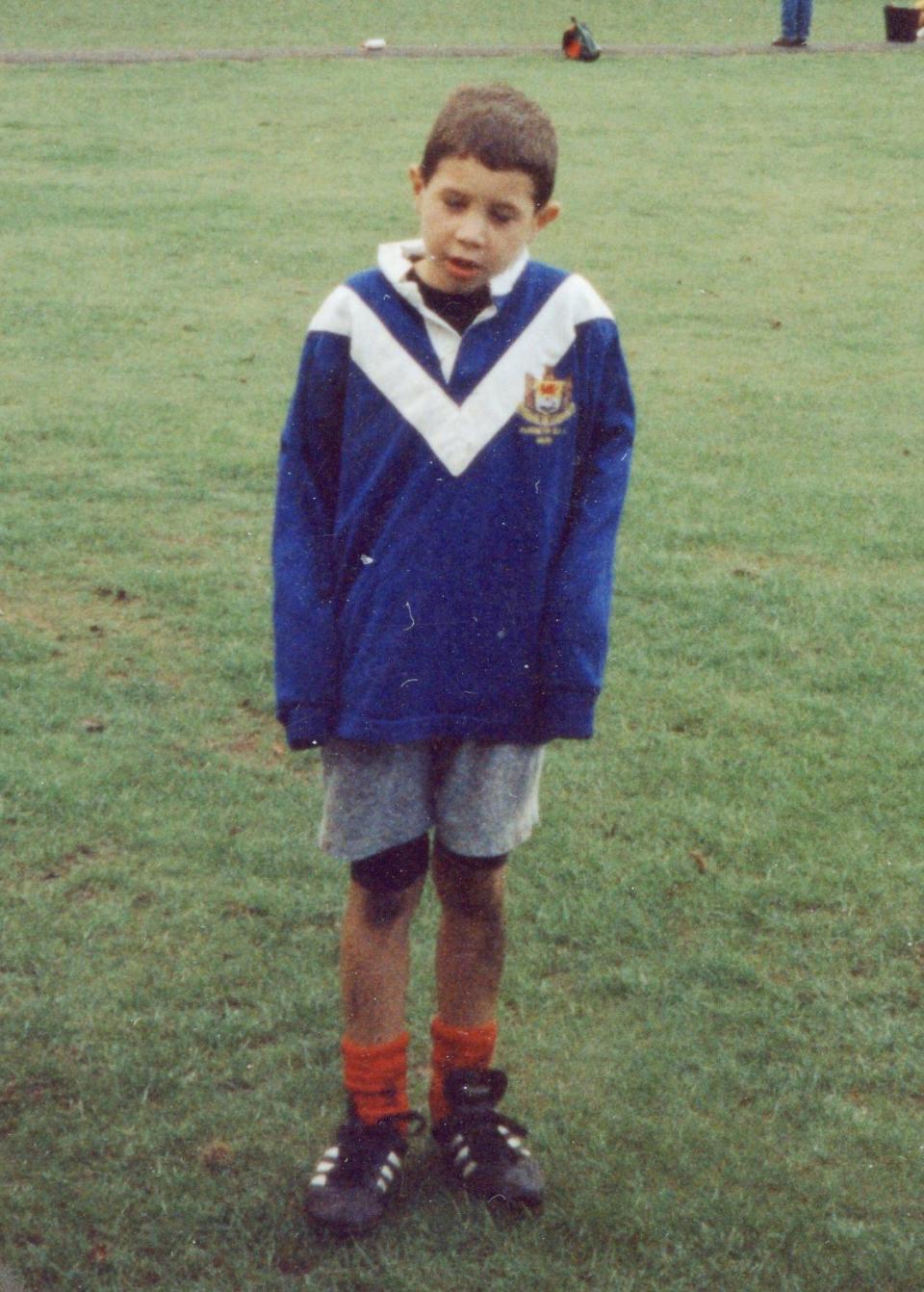
It later became a game where teenage angst could thrive. I was quite an angry kid (my teammates will say I’m still incredibly angry now) and rugby was not only a release, but something I could excel at.
I’ve played in the national leagues in both England and Wales and I flirted with the Worcester Warriors academy whilst I was at university in the town chasing the dream.
But an injury put any faint hope of life as a pro to bed. I’ve not had the best luck when it comes to injuries.
I was constantly in and out of A&E. It was par for the course, and still is, but it’s not only you that it impacts.
The worst was a three-night stay at the Royal Glamorgan Hospital with my arm pointing the wrong way. My parents were on holiday, so not wanting to ruin their week away, my sister Beca and I kept it from them.
At 16, she was getting lifts twice a day to make the 40-mile round trip from the house to the ward.
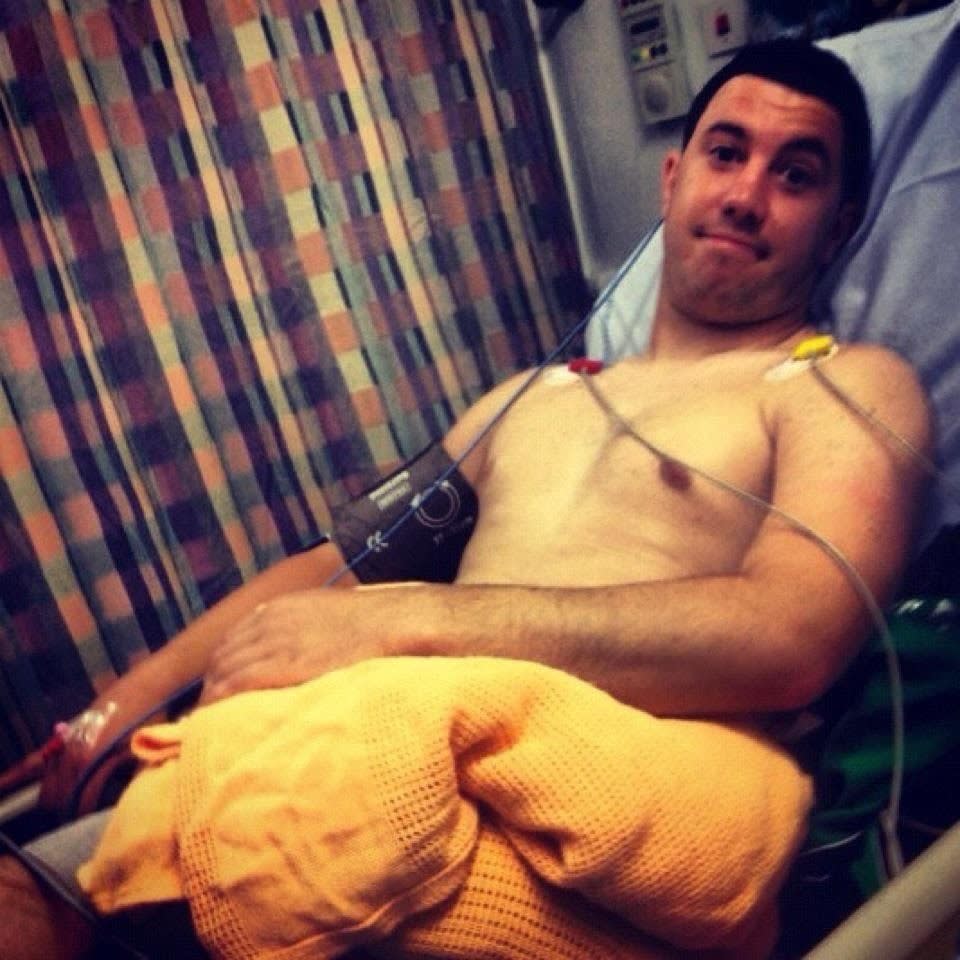
“I remember getting to the hospital and he was just screaming as the nurses were manipulating his broken arm,” Beca recalls. “It was just typical of him —he was always getting hurt.” Dad was never fussed about the risks – he played at the top end himself in the front row so knew what it was all about. He scored twice from hooker against the Barbarians in 1982 for Penarth. He doesn’t mention it much.
Mam, on the other hand, was a wreck.
“I enjoyed watching him in the main, but it would be a nervous watch for a mother knowing the risk of injury,” she said.
Amy, the mother of my children, says: “I do want the kids to get into rugby, if not only for the social aspect of the game. The discipline to train hard and the camaraderie you get from rugby is obvious, even to someone on the outside like me.
“I may feel a little differently about it when they are old enough to do contact – under-9s does seem a bit young to start. But then I suppose the earlier they start, the better their technique will be. Being a mum on the sideline will be a very different story to being a girlfriend.
“Gareth’s been playing so long, I don’t really worry about him getting hurt. It does inconvenience our lives when he does – because I have to do more. We’ve had to go to weddings with him on crutches and in moon boots and casts, which isn’t the strongest look,” she says.
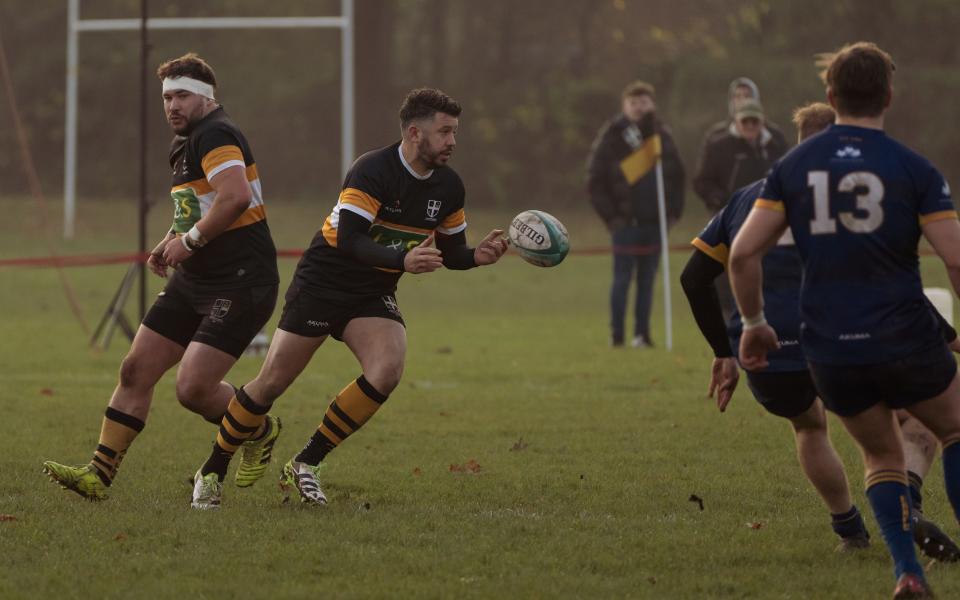
When I was getting my knee surgeries, the consultant told me I’d need replacements by the time I’m 40. Of course, that’s a concern, but I didn’t think for a second of giving rugby up. I just asked how quickly I could get back out onto the field.
We live in a world now where everything will kill you. A meaty diet, eight hours sleep a night, a glass of wine a day and weight training can either be good for you or bad for you depending on where you read it.
If we listened to the snowflakes, we’d never leave our houses.
A nation working from home, communicating only through their phones, allergic to human contact and addicted to the latest wellness fad.
Rugby’s injury figures are stark. There’s no denying that. And then there’s the concussion lawsuit – more than 200 former professionals are suing the sport’s biggest governing bodies for negligence.
Scant as the details are, it is a dark, heavy cloud over the game.
One of those involved is former Wales international Alix Popham, and nobody knows more about the horrors that rugby can cause than him. A man who met Nelson Mandela before a Wales-South Africa match, but has no memory of it.
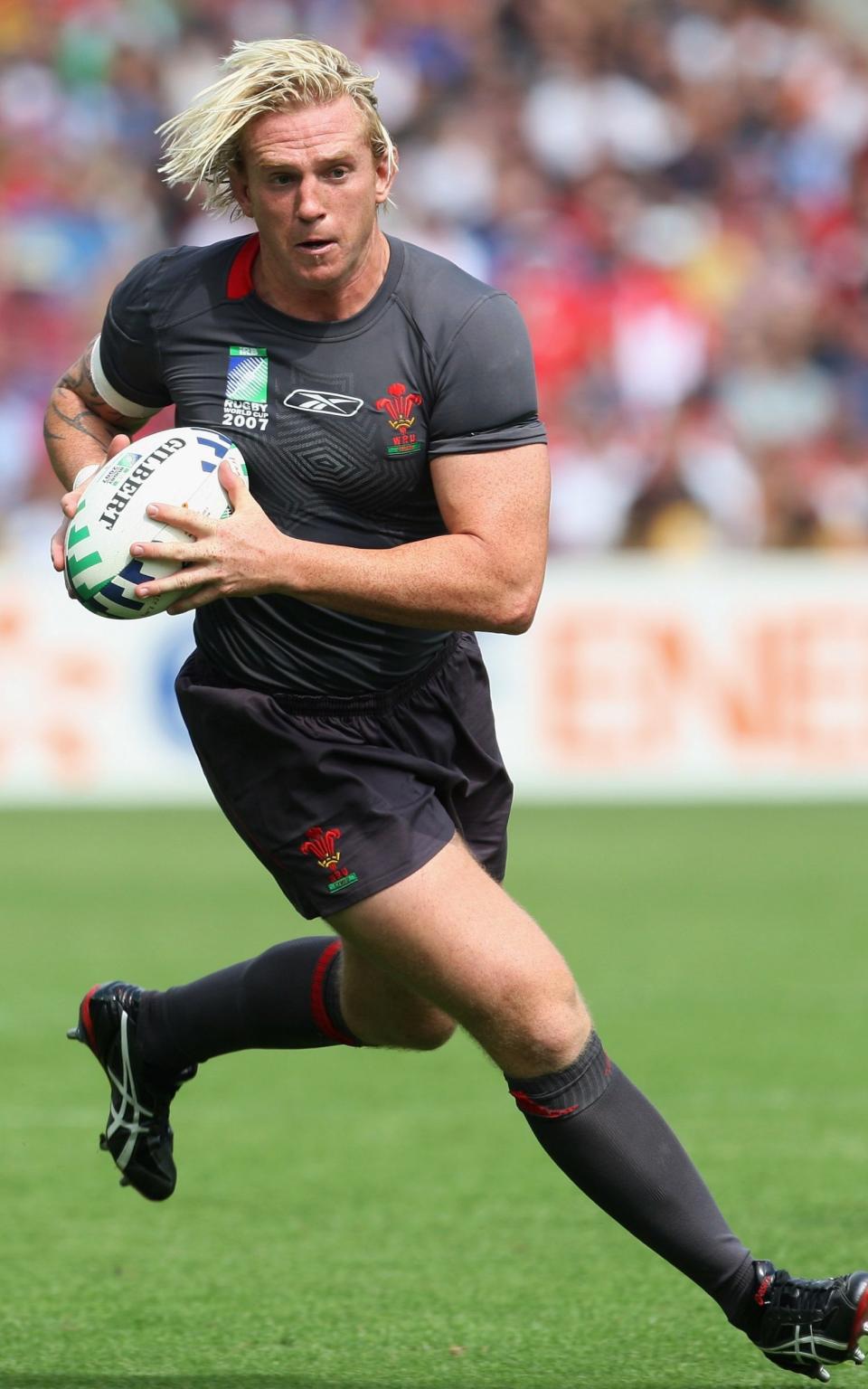
He was diagnosed with dementia at 40, having represented his country 33 times. Popham was on a cycling route near his house that he’d been on dozens of times, but one day his mind went blank and he couldn’t find his way home.
During a 13-year playing career, it’s estimated he had 100,000 sub-concussions caused by hits during matches and training.
I asked him if society had become over-cautious. His response: “Come and spend the afternoon with some of the players I’m working with who have had three suicide attempts, who can’t get off the sofa, who are really, really struggling. And this isn’t just one person – this is a lot of people.”
Does he regret playing the game?
“I regret it sometimes with what I’ve put my family through and my kids and Mel, my wife. “It’s a tough one. I’m still proud I played for Wales, I just would’ve done things differently with what I know now.”
Popham has three daughters, but wouldn’t let any of them play rugby as children because he thinks it’s too unsafe and that youngsters do too much contact, too young. He’d sooner see his five-year-old daughter Darcy get into boxing.
“Still, today,” Popham says, “players think they can be knocked out and play seven days later. In boxing – the same injury, they’re not getting back in the ring for three months. “There’s no difference in the injury, it’s just one sport is a lot safer than the other,” he says.
Being equipped with the knowledge of concussion is key, Popham says.
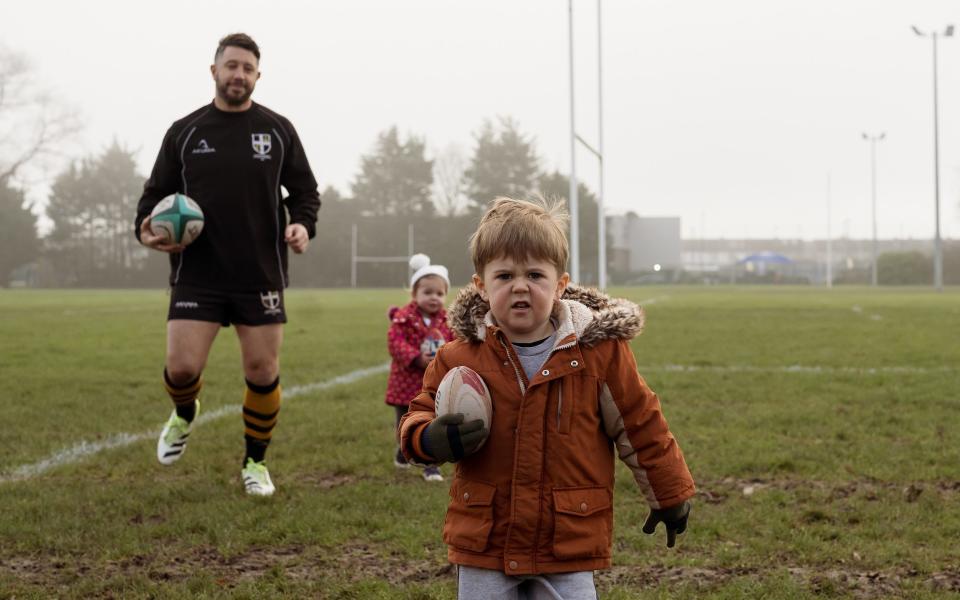
One group doing just that is Return2Play – a sports medicine clinic whose head injury and concussion service is used by more than 100 schools and clubs. They saw 5,500 children last year. 80 per cent of these were confirmed concussions, and the vast majority of the children had been playing rugby.
Dr Sam Barke, Return2Play’s head of sports medicine, told The Telegraph: “Rugby carries a higher risk than most sports and I think anyone would be delusional not to accept that.”
The numbers appear to be rising, but is that because – like many things in society – as we become more aware, more instances are reported?
The doom mongers will have you believe rugby is more dangerous now than it ever has been. But the data doesn’t back it up.
Dr Barke, who used to play rugby himself, cited a study from the Eighties at Rugby School where the threshold for concussion was being knocked out. This accounts for fewer than 10 per cent of concussions today.
“So if we took the numbers and times that by 10, to give you a modern standard of diagnosis, very crudely, the numbers are actually pretty similar,” says Dr Barke says.
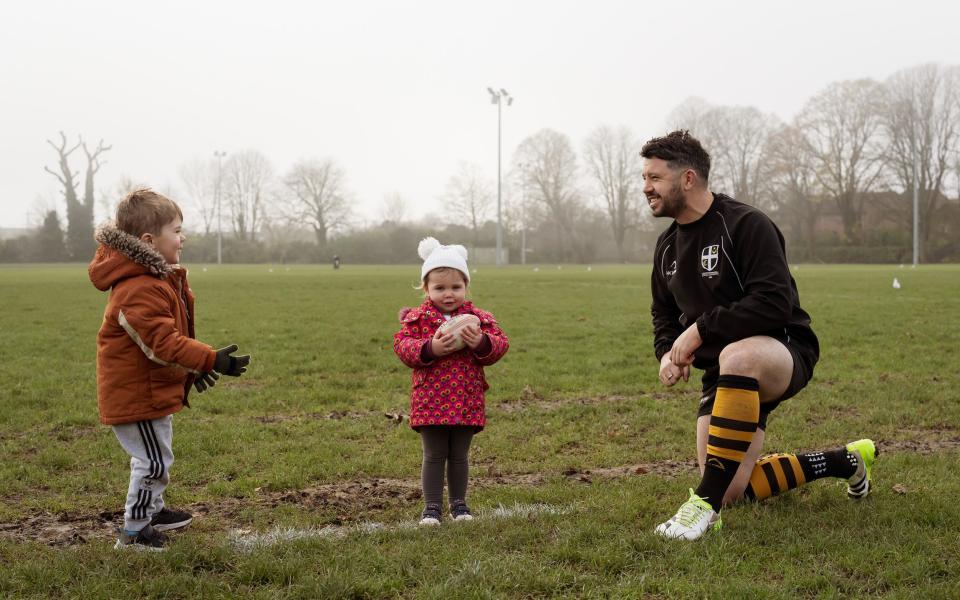
There are risks, of course there are, but do they outweigh the positives?
“Risk, ultimately, is personal,” says Dr Barke. “And we all have different thresholds for risk in our lives, in all sorts of things we’re doing – not just in rugby. The counter will always be, ‘Well you can get that doing other sports’.”
But, actually, rugby was the sport that I loved. So, for me, it was very special and for lots of other people it is too. I think that rugby needs to do a better job at really explaining those benefits.”
Analysis and figures like these don’t really change anything for me. Any player who steps out onto the rugby field knows they’re not going out there to play tiddlywinks. Of course, it’s ultimately not my decision if Elliott or Isobel decide to play rugby for more than 30 years like their dad.
I’ll encourage them to do it as much as I can without pushing them, and whatever they choose to do I’ll be their biggest cheerleader. I’d be devastated if they turn their back on the sport on which I was built.
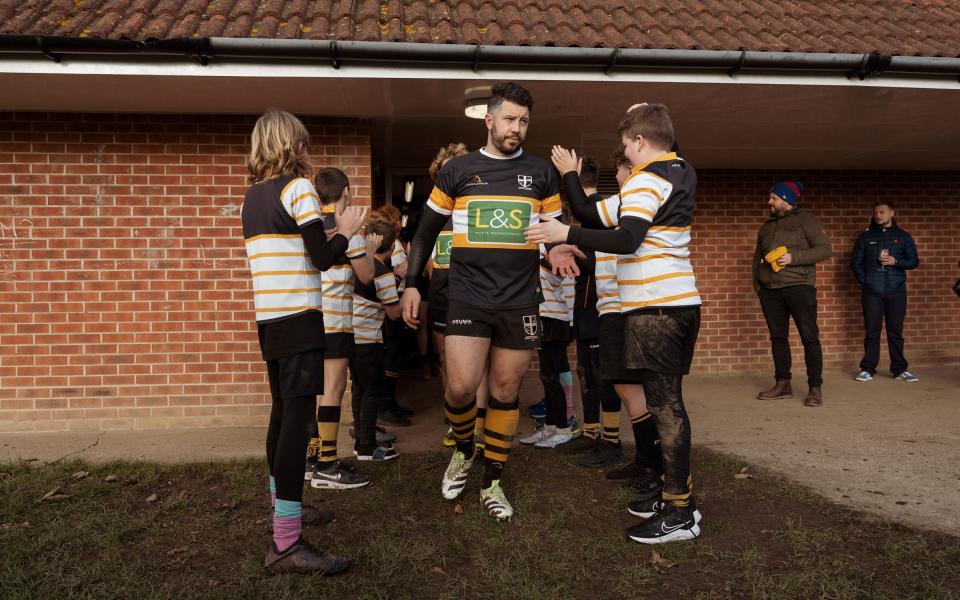
Not because I want them to play for Wales or to forge a career from it, but I want them to feel the sense of belonging and purpose it’s given me for my entire life.
I worry, like any other parent, about everything to do with my children.
I worry they’ll get bullied in school. Is the answer to keep them at home in case that happens?
I worry they’ll get into trouble on a night out. Lock them in their rooms?
I worry they’ll resent me as they get older for not being there enough. Quit my job and be a stay-at-home dad?
The answer to all of these is, obviously, no. And the same goes for rugby.
You don’t make that decision to play because of the risk, you play because of the endless benefits. Even if most of those benefits can’t be written down.
What does a concussion do to you?
By Dr Sam Barke
Concussion is a minor traumatic brain injury caused by a stretching or shearing of the nerves within the brain. It can occur from direct impact to the head or from an indirect force which causes shaking of the head (such as a whiplash injury). The injury to the nerves alters how they function and can result in a wide range of possible signs or symptoms – some physical (headaches or dizziness), some cognitive (difficulty concentrating or memory issues), some emotional (feeling anxious or low in mood) and some sleep related (both tired and also difficulty sleeping). Symptoms can be low level and may be short-lived but this would still be classed as a concussion and would need careful management.
How children can play rugby safely
Prevention
Looking at how we can reduce the risk of these injuries happening in the first place whilst acknowledging that we’re never going to be able to completely remove that risk. That’s engaging with law changes, looking at safer techniques, a safe introduction of contact, well trained coaches and there will undoubtedly be innovation over the next few years in terms of technology that can help with that, too, but we’re not quite there yet.
Recognition
So accepting that these injuries are happening, and having an understanding as a parent, as a coach, as whoever it might be, how to recognise when a head injury has occurred and when you should be concerned about it. As I stated earlier, the first step in managing these injuries well, and therefore reducing risk once the injury has happened. It is a public health issue and shouldn’t just be rugby’s issue – everyone should have some knowledge of this injury.
Management
We know that by managing it well, people feel better quicker. We also know that having a gradual reintroduction to sport – and being well managed by a medical professional that understands the injury – can lead to the reduction of the risk of ongoing issues with short-term and long-term harm once the injury has happened.
Benefits of playing rugby according to the RFU
“Playing rugby provides significant physical and mental health benefits and we believe that the life skills, wellbeing and health benefits of playing the sport outweigh the risk of injury. Against a backdrop of increasing physical inactivity and a global obesity epidemic in children, rugby has a role to play in keeping people active, healthy and engaged.
“It is also crucial that we remember other non-physical positive benefits of contact and non-contact rugby for all ages, including increasing confidence, self-esteem and self-discipline, as well as the physical benefits of engaging in enjoyable exercise whilst working as part of a team.”

